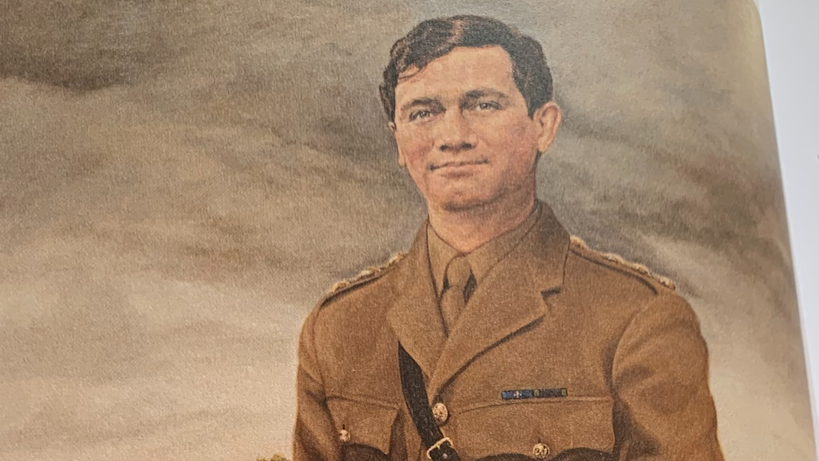'Hope' as first search for Capt Robert Nairac begins
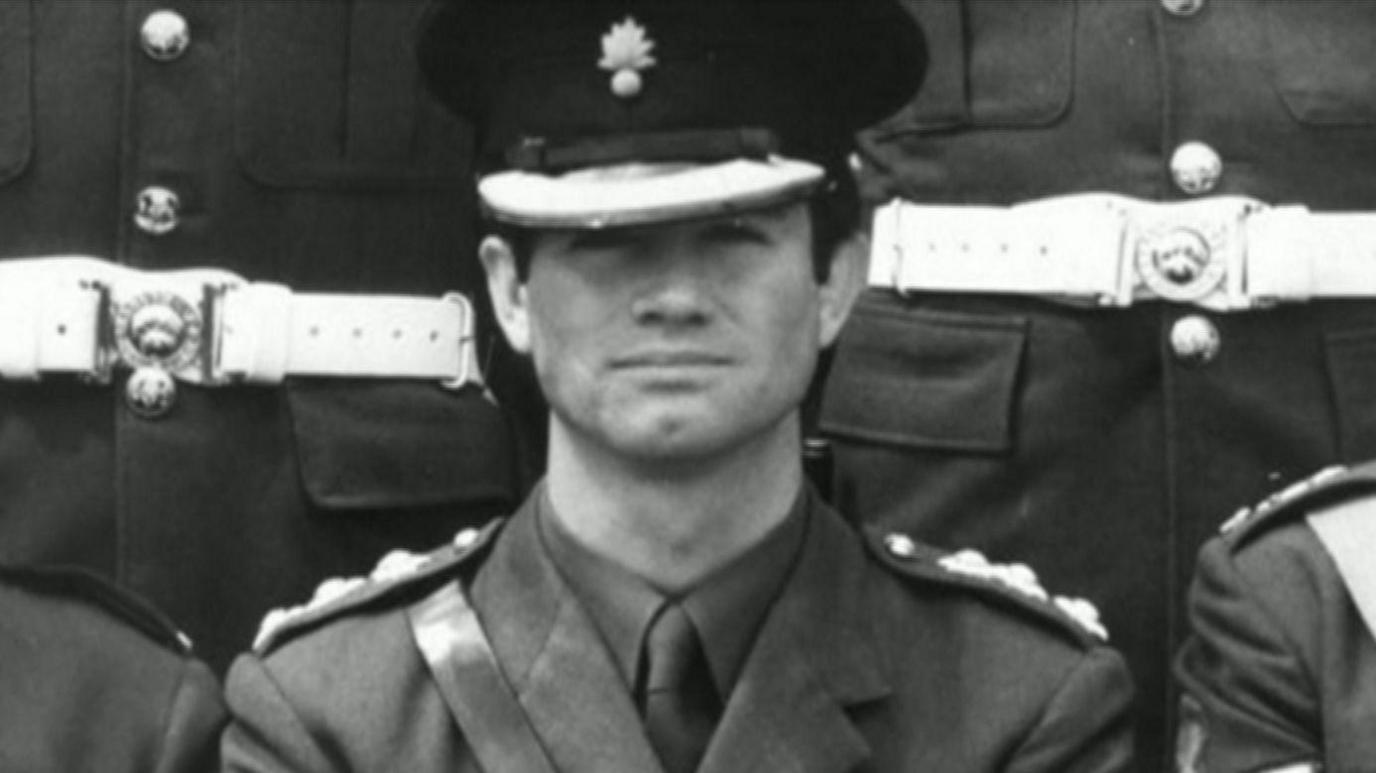
- Published
An area of farmland in County Louth is being examined for the remains of Captain Robert Nairac, who was abducted and murdered by the IRA while working undercover.
It is the first search for his remains since he was shot and secretly buried in May 1977.
The search has been organised by the Independent Commission for the Location of Victims' Remains (ICLVR).
It said it has “sufficient credible information” to begin a search of private land in the Faughart area near Dundalk.
Speaking at a press conference on Monday morning before the dig, the lead investigator, Jon Hill, said said he was "hopeful" that the search could be successful.
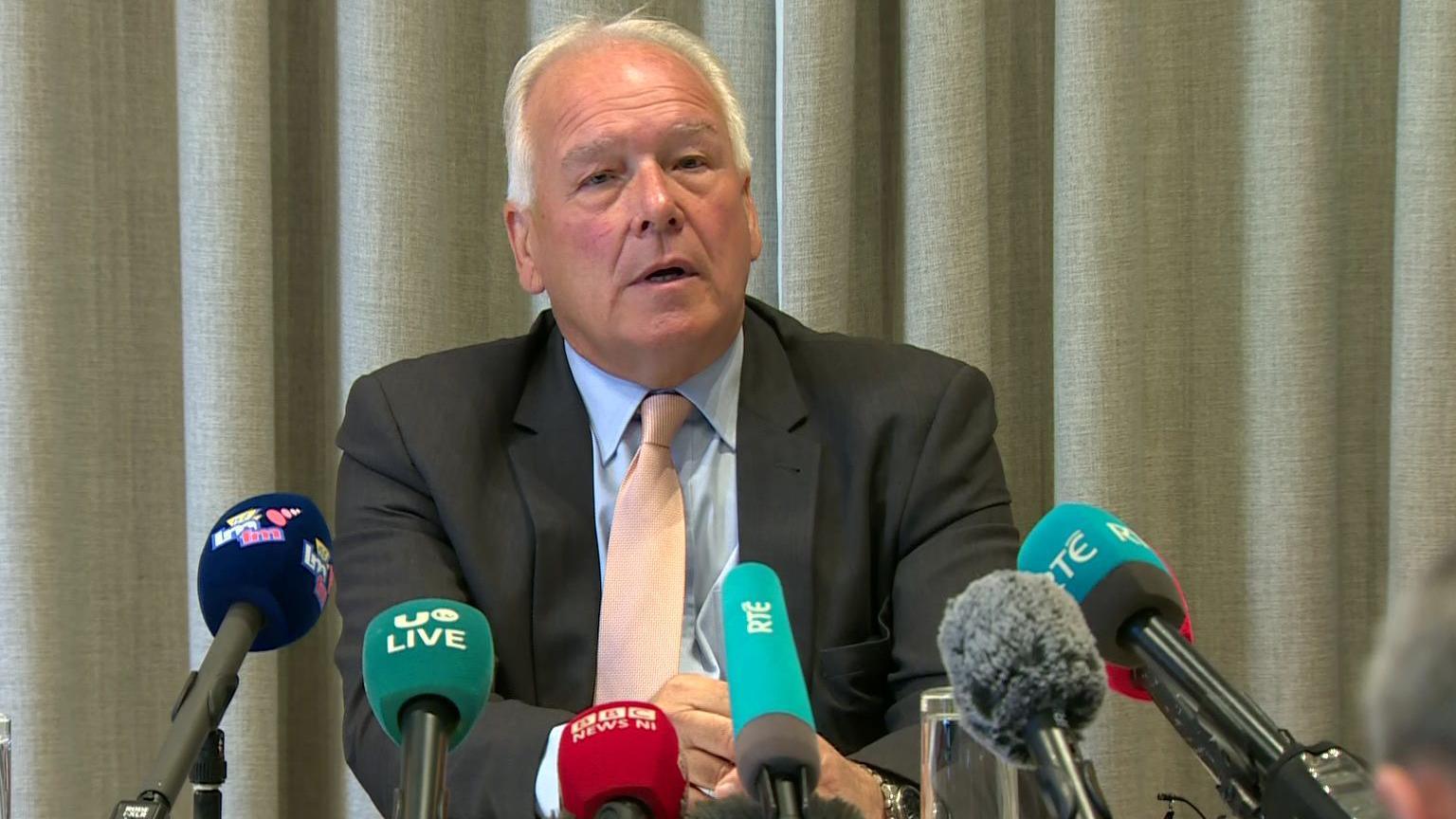
In a press conference on Monday morning Mr Hill said the land that was being searched was farmland
“It has been analysed, we have gone through the information with a fine tooth comb to make sure it is worthy of getting to this stage and it is more than worthy, so credible is a good description,” he said.
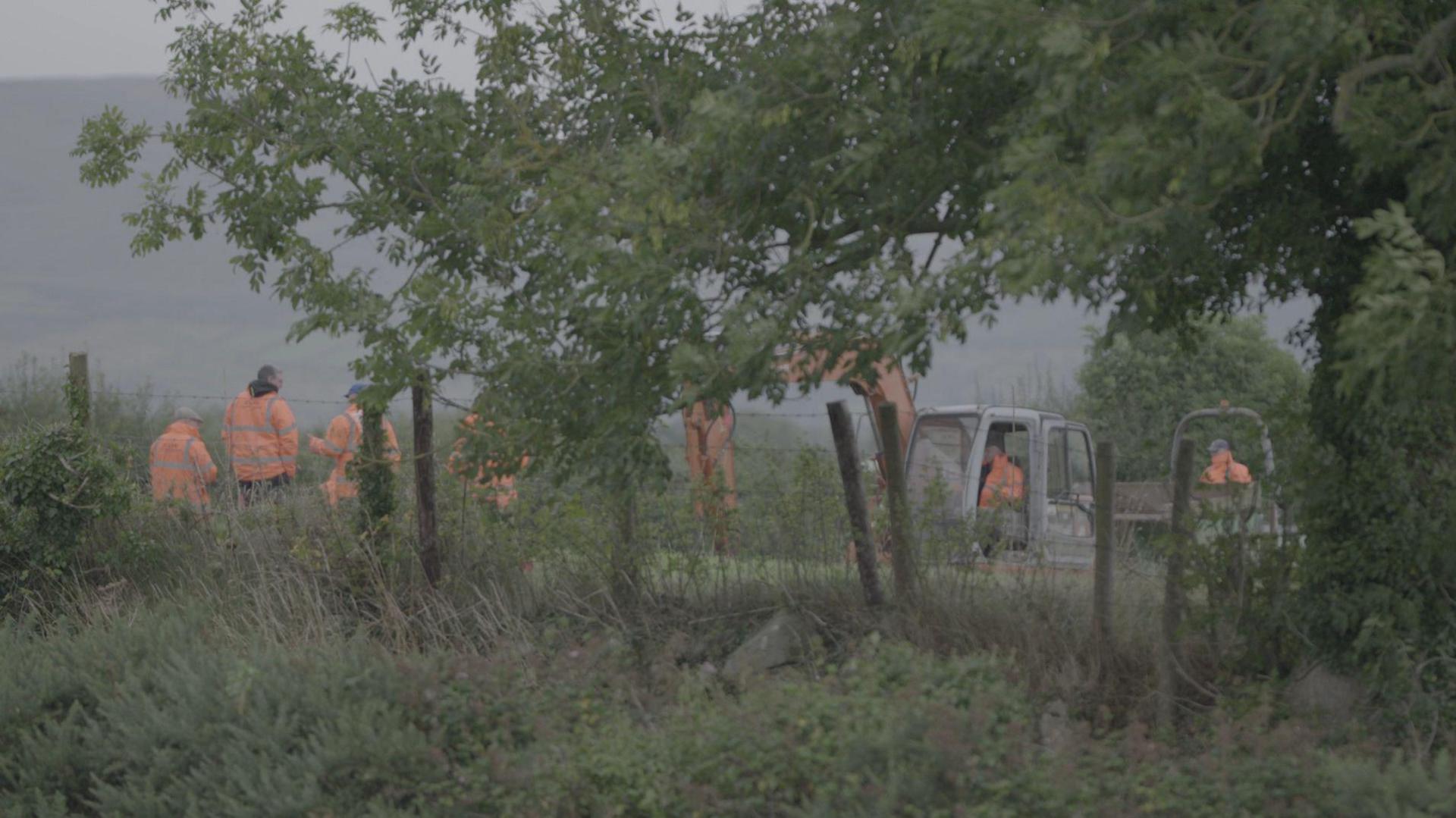
The search got under way on Monday
Appeals for information
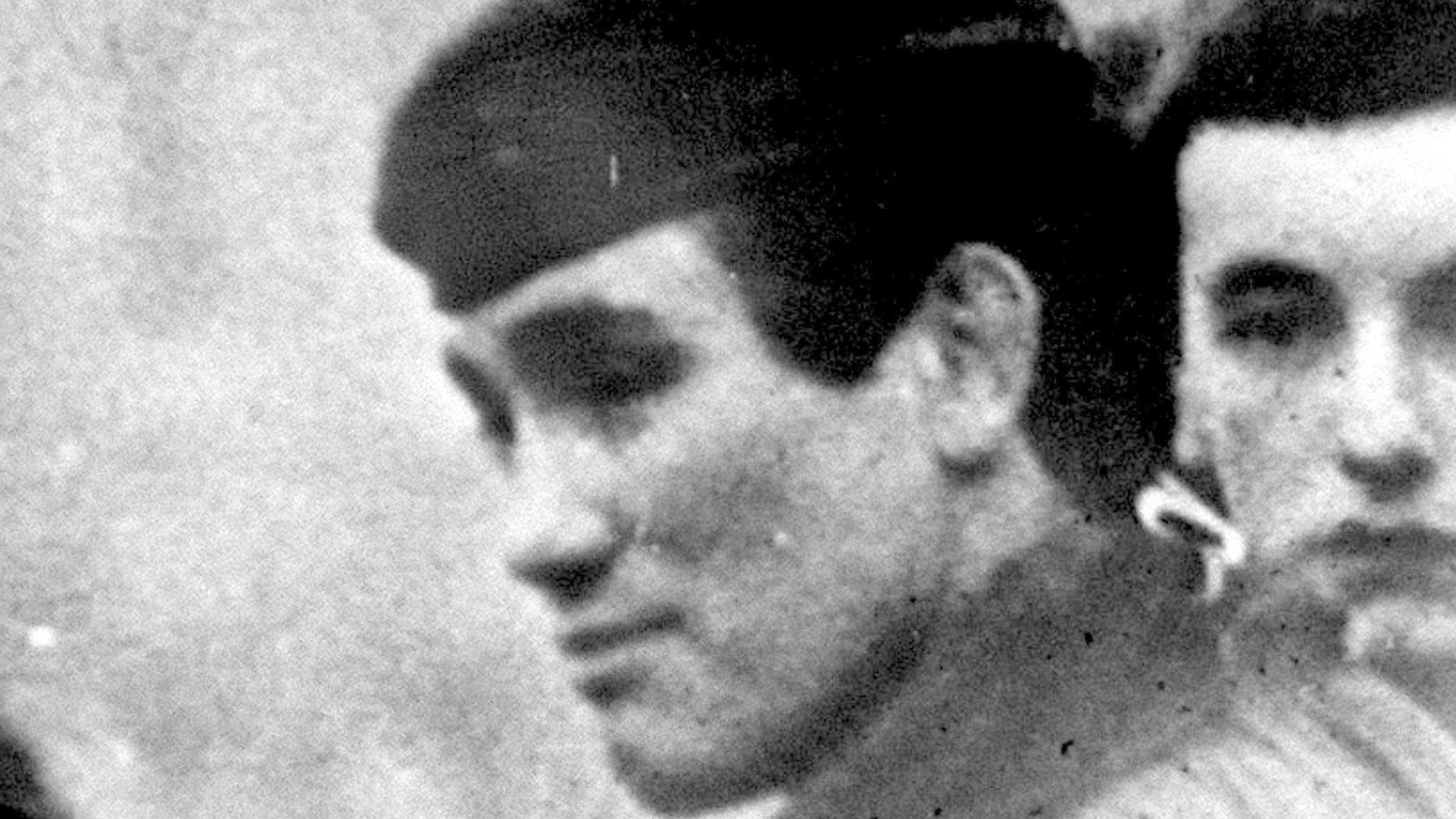
Captain Robert Nairac was abducted while operating undercover
Capt Nairac, 29, who was from Gloucestershire, and lived in Sunderland, was abducted from a pub at Dromintee in South Armagh.
He was then taken across the Irish border to Flurry Bridge, where he was beaten and shot dead.
The location of his remains has remained a mystery.
In recent years, there has been a number of appeals for information made by the ICLVR.
It was established by the British and Irish governments in 1999 to find the Disappeared – 17 individuals murdered by republicans during the Troubles and secretly buried.
The remains of 13 victims have been found to date.
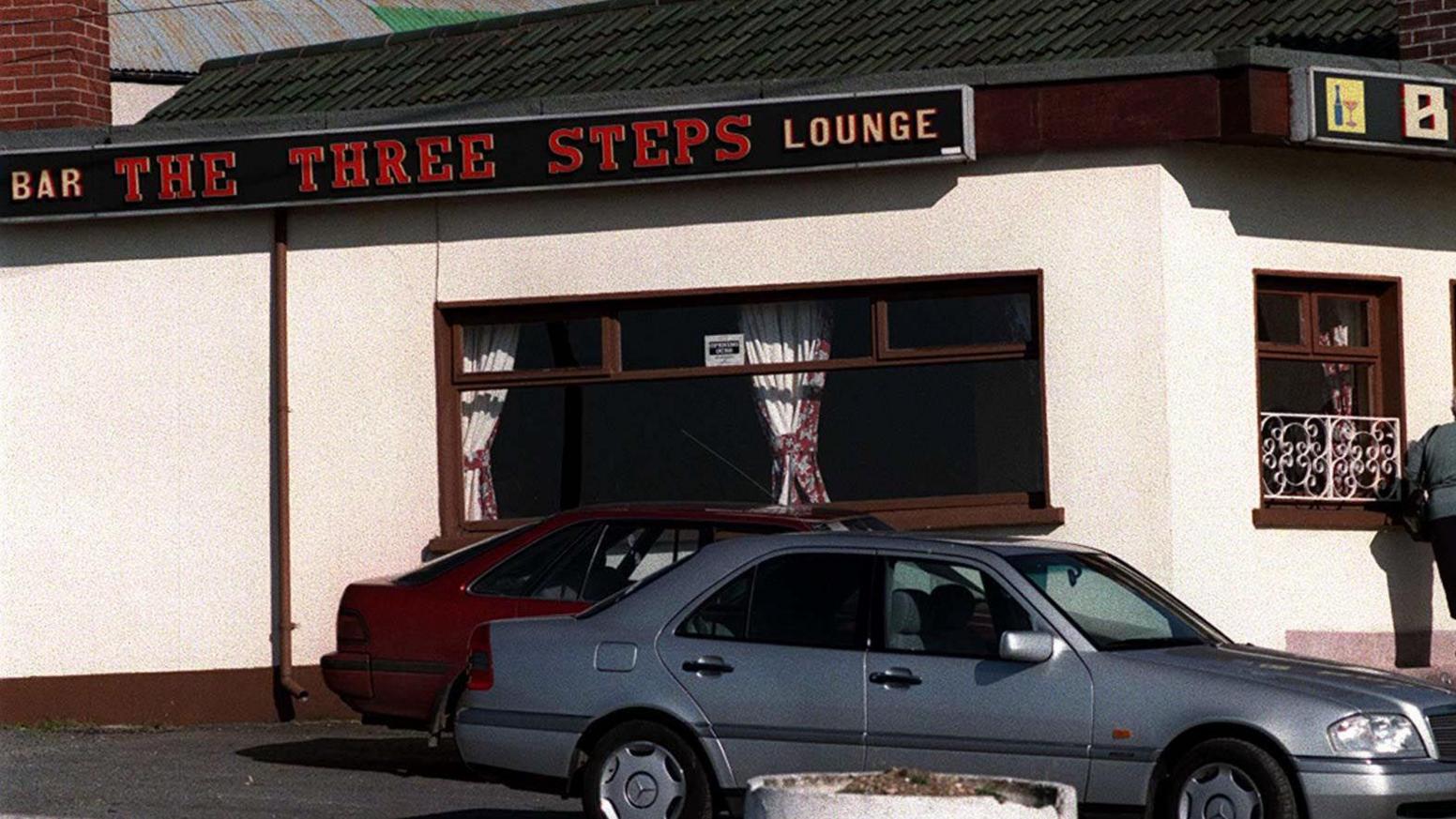
Robert Nairac was at The Three Steps pub in south Armagh before his abduction
The land being searched, the precise location of which has not been disclosed, is private farmland, Mr Hill said.
Mr Hill added that “neither the landowner nor the tenant” have any connection to the decision to search the location.
The area is said to be less than one acre in size.
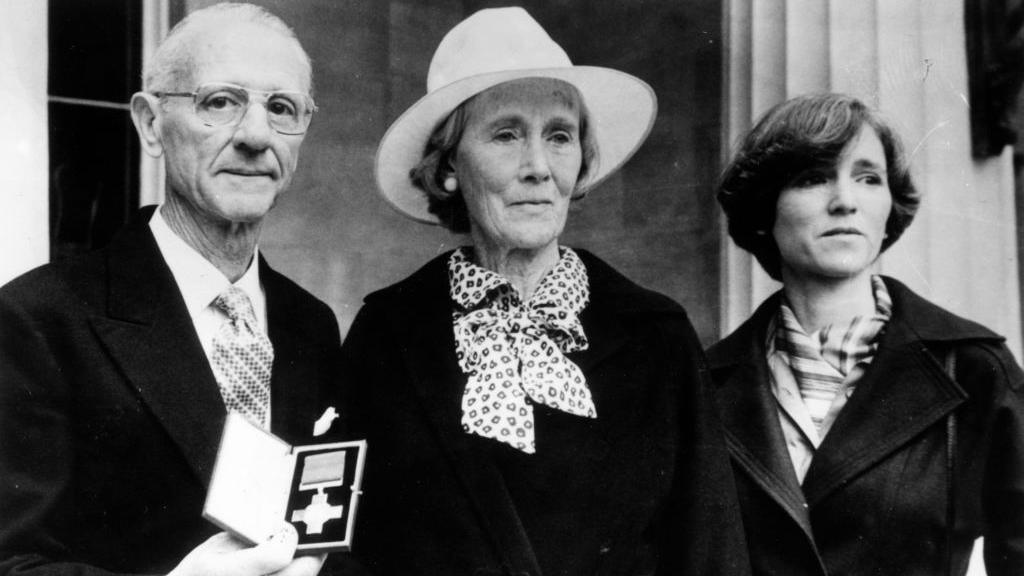
Robert Nairac's parents Maurice and Barbara, with sister Rosemonde, received his George Cross in May 1979
Mr Hill said that although the search would be on farmland, not bogland, it still presented challenges and that he would not set a timescale.
However he has said a "protracted search period" was not expected.
“It is on Faughart Hill, a battlefield site from the 1300s, so that presents a number of challenges to us,” he told BBC Radio Ulster's Good Morning Ulster.
“Not least that we have had to engage with National Monuments Ireland who have been very supportive of the work we are doing, but it has meant we have had to add extra layers within our searching strategy to deal with any archaeology and perhaps even human remains that may be found that aren’t related to Robert Nairac.
“We will search until we find him or have eliminated that area."
He said he had spoken to Captain Nairac’s relatives recently.
“The position they are in at the moment is that they don’t want to get their hopes up too high and they are quite right as well, because this is hope rather than expectation.
“It is a very difficult task that we are undertaking, even if we are in exactly the right area, it isn’t easy to find these remains – and if you are not then it is impossible.”
Mr Hill encouraged anyone who had information in relation to any of the Disappeared to come to the ICLVR in “complete confidence”.
'They will be living in hope'
Dympna Kerr’s brother, Columba McVeigh, is one of the Disappeared.
Mr McVeigh, from Donaghmore, in County Tyrone, was 19 years old when he disappeared in 1975.
His remains have never been recovered after several unsuccessful searches.
Ms Kerr told BBC Radio Ulster's Evening Extra programme that “when there’s a search going on…mentally it’s draining. It’s just you’ve so many emotions”.
She continued that “you can’t put it into words how you feel, you really can’t”.
“All these emotions are going but at the end of the day what’s the one thing we have to keep? Hope," he said.
“And that’s what they [Mr Nairac’s family] will be doing today. They will be living in hope."
Fresh appeal in search for Army captain's remains
- Published14 May 2022
Army captain IRA victim 'likely buried'
- Published15 June 2018
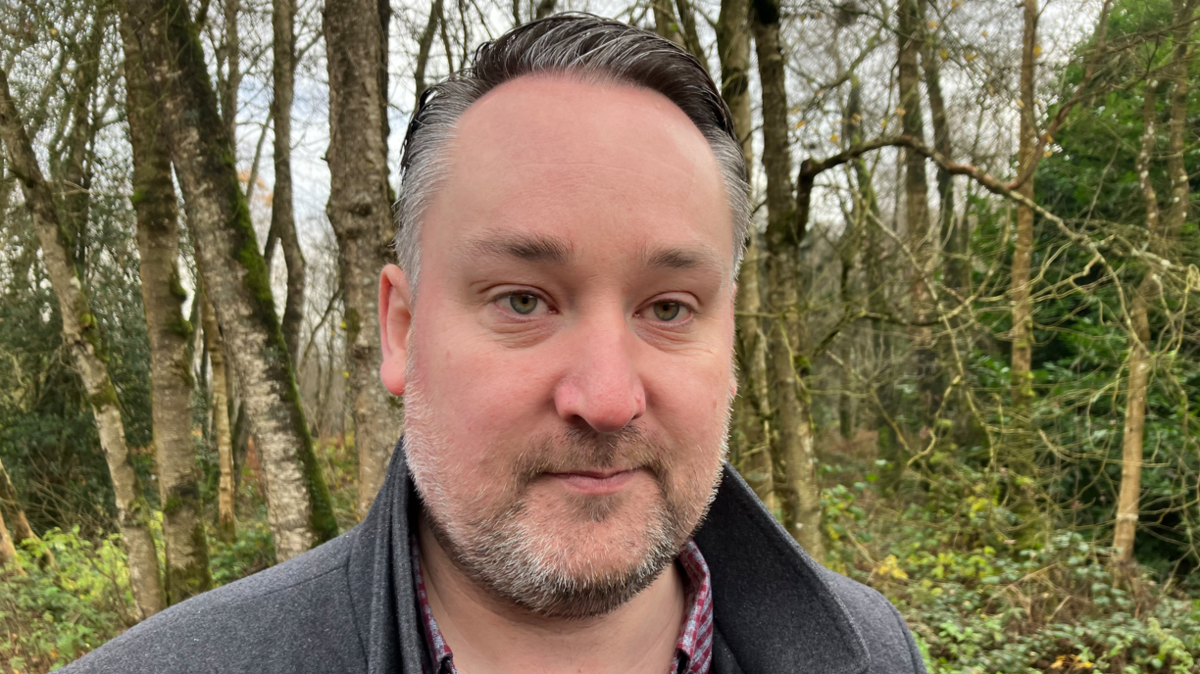
Kenny Donaldson says a "grieving family" had been denied their right to bury their loved one
Kenny Donaldson, director of the South East Fermanagh Foundation, said the "murder and disappearance of Captain Robert Nairac remains a talking point in almost every home across south Armagh and indeed much further afield".
"At the heart of all of this is a grieving family who have been denied their basic right to have Robert's remains and to progress a Christian burial," he added.
"We pray that the new information which has come forward turns out to be credible."
The search location is within a wider area of significant archaeological interest.
The Hill of Faughart has been identified as a 14th Century battle site.
The ICLVR said it has the co-operation of the National Monuments Service.
The commission has previously dismissed rumours that Capt Nairac’s body was disposed of in a meat processing plant.
It also described claims he had been involved in a number of terrorists incidents, such as the Dublin and Monaghan bombings, as “wild allegations”.
Related topics
- Published26 August 2024
